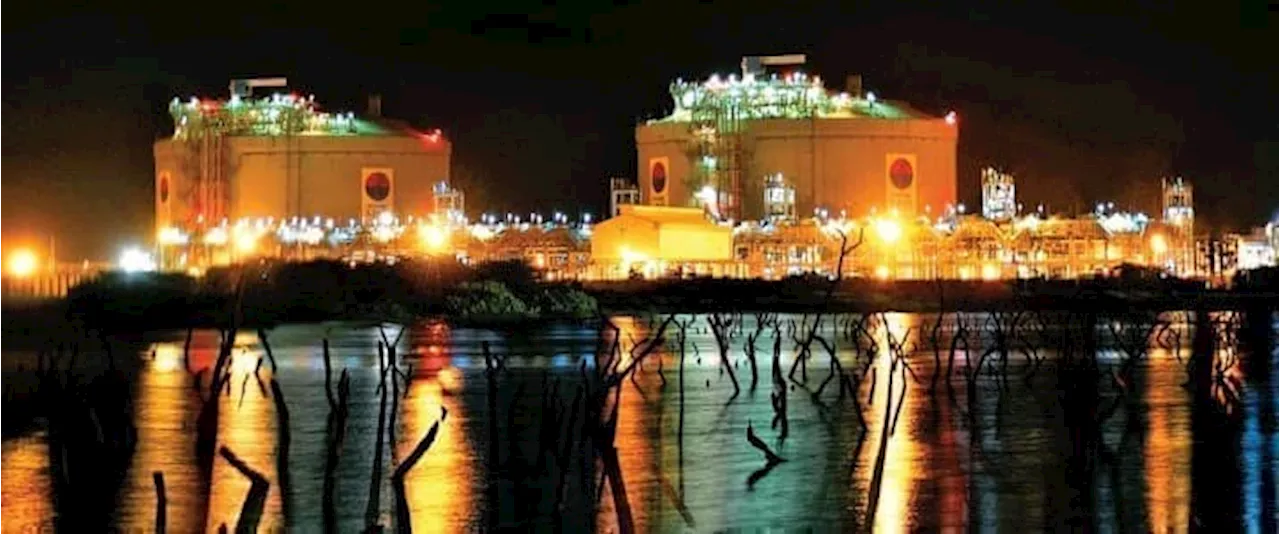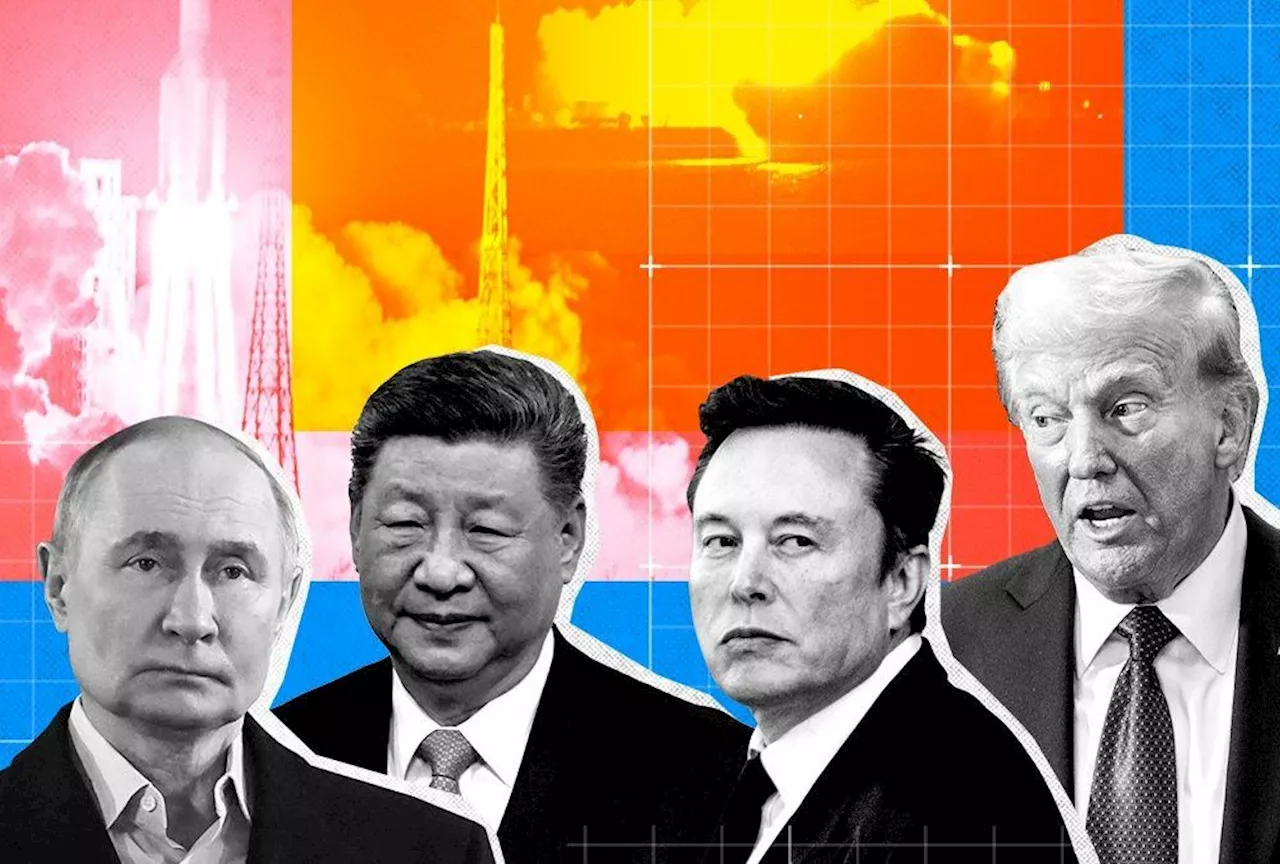Growing threats from space, coupled with the potential return of Donald Trump and his ties to Elon Musk's Starlink, raise concerns about a new arms race and potential divisions within the Nato alliance.
As threats from outer space grow, experts warn a Trump 2.0 presidency could create divisions within the security alliance. While Nato countries have consistently been aligned in its dealings with China and Russia’s exploits in space, experts say the imminent presidency of Trump and his ties to Elon Musk ’s Starlink satellite systems could divide the alliance. What once seemed like science fiction is fast becoming a reality: outer space is emerging as the next frontier.
Satellites, first designed to deliver GPS signals across space, mitigate against hurricanes and track forest fires, are today also used to identify targets and guide missiles. As technology advances, space is fast becoming a theatre where nations position themselves for dominance. China and India have developed weapons capable of destroying satellites, while Russia has been accused of exploring nuclear weapons in space, sparking fears of a new arms race above Earth. The North Atlantic Treaty Organisation (Nato), a constellation of states that includes the US and the UK, has since designated space as a new operational domain, alongside air, land, sea and cyberspace. China has conducted another groundbreaking test by launching two hypersonic gliders into low-Earth orbit. These systems, along with jamming radars and cyberattacks, can disrupt satellites without causing physical damage. In December 2022, the US put forward a motion at the United Nations General Assembly (UNGA) to ban testing anti-satellite weapons. Notably, 155 countries voted in favour of the resolution, but Russia and China voted against the adoption. “China and Russia’s recent trends are not encouraging,” Jamie Shea, former deputy assistant secretary general for emerging security challenges at Nato told. “Iran is launching satellites, and North Korea is reportedly receiving Russian assistance with satellite technology and hypersonic weapons. The next few years will show whether countries prefer regulation or militarisation of outer space.” Nato maintains that it has no plans to weaponise space, focusing instead on co-ordinating satellite imagery, navigation, and early warning systems among its members. The UK has taken a leading role, announcing its programme to support satellite launches and artillery munitions. In October 2024, the UK Defence Secretary John Healey signed a letter of intent to strengthen collaboration on government and commercial space launch capabilities. Nato’s space-focused infrastructure has expanded with the Nato Space Centre at Allied Air Command in Ramstein (Satcom), Germany, and a €1bn (£838m) investment in satellite communication services through 2034. SpaceX, founded by Elon Musk, is responsible for half of all satellites in orbit. They have been used to aid the war in Ukraine, while the company has signed lucrative contracts with the US military. A top secret new programme called “Project Heist”, a classified extension of Starlink, also provides the US government with premium spy satellites and enables rapid surveillance of nearly any point on Earth, according to The US military has quietly become more dependent on satellite internet provided by SpaceX, with experts claiming Musk’s satellites are now “locked-in” to US security. Dr Dimitrios Stroikos, the head of the Space Policy Programme at the London School of Economics says that Musk’s “involvement in Trump’s campaign and subsequent close collaboration, including the creation of the “Department of Government Efficiency” (Doge), suggests an attempt to influence policy in ways that benefit his business interests. Nato aims to establish satellite links as backup systems for undersea cables, with recent undersea cable damage incidents highlighting the importance of Project Heist. The Hybrid Space Architecture Ensuring Information Security of Telecommunications, known as Heist, acts as a back-up for undersea cables. The alliance plans to develop a system that can seamlessly transition between undersea cables and satellites during disruptions. It was partly being developed by SpaceX, signalling Musk’s interest in expanding satellites into Europe. Charles Knight, a senior fellow at the Centre for International Policy’s Project on Defence Alternatives: “As a general rule it is wise to suspect that much of US policy and activity is to keep Nato close, while selling US military technology to aligned countries.
SPACE ARMS RACE NATOSATELLITES TRUMP ELON MUSK
United Kingdom Latest News, United Kingdom Headlines
Similar News:You can also read news stories similar to this one that we have collected from other news sources.
 How Gender-Affirming Health Care Providers Are Preparing for Trump’s PresidencyWith Donald Trump poised to return to the White House, gender-affirming health care providers are bracing for impact.
How Gender-Affirming Health Care Providers Are Preparing for Trump’s PresidencyWith Donald Trump poised to return to the White House, gender-affirming health care providers are bracing for impact.
Read more »
 Norway's Security in the Shadow of a Trump PresidencyThis article examines Norway's complex relationship with the United States, particularly in light of Donald Trump's presidency. While Norway boasts strong ties with the US through NATO, economic partnerships, and shared security concerns, Trump's policies on tariffs and NATO raise anxieties for Oslo.
Norway's Security in the Shadow of a Trump PresidencyThis article examines Norway's complex relationship with the United States, particularly in light of Donald Trump's presidency. While Norway boasts strong ties with the US through NATO, economic partnerships, and shared security concerns, Trump's policies on tariffs and NATO raise anxieties for Oslo.
Read more »
 Megamergers Surge as Dealmakers Bet on Trump's PresidencyIncreased optimism among CEOs and anticipation of less regulatory scrutiny under President Trump are fueling a surge in megamergers, pushing the value of global takeovers back over $3 trillion.
Megamergers Surge as Dealmakers Bet on Trump's PresidencyIncreased optimism among CEOs and anticipation of less regulatory scrutiny under President Trump are fueling a surge in megamergers, pushing the value of global takeovers back over $3 trillion.
Read more »
 What could a Trump presidency mean for Bitcoin?...
What could a Trump presidency mean for Bitcoin?...
Read more »
 How Trump Could Transform India's Energy FutureIndia is set to reap some significant benefits in the energy area from a Trump presidency.
How Trump Could Transform India's Energy FutureIndia is set to reap some significant benefits in the energy area from a Trump presidency.
Read more »
 Trump suggests he wants to regain control of Panama Canal when he assumes the PresidencyDonald Trump has suggested he may try to regain control on the Panama Canal after describing the deal to sell the passage to Panama as 'foolish'.
Trump suggests he wants to regain control of Panama Canal when he assumes the PresidencyDonald Trump has suggested he may try to regain control on the Panama Canal after describing the deal to sell the passage to Panama as 'foolish'.
Read more »
